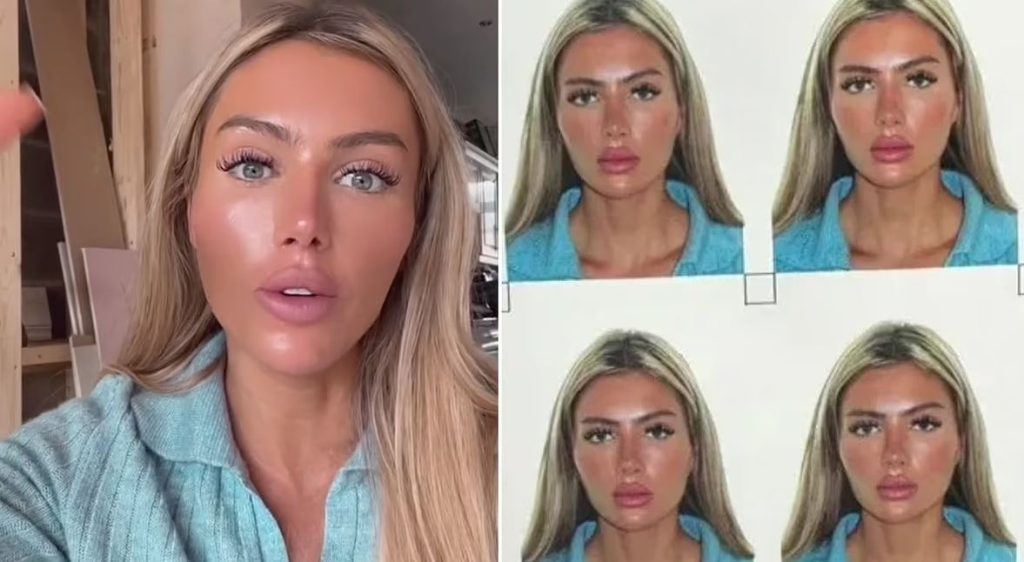In an era where cosmetic enhancements are increasingly common, some individuals are encountering unforeseen challenges related to identity verification during international travel. Ashley Stobart, a UK-based influencer and co-host of the “Nip Tuck” podcast, recently shared her experience of being denied passport recognition due to significant changes in her appearance following extensive plastic surgery.
Ashley Stobart’s Transformation and Travel Hurdles
At the age of 34, Ashley Stobart underwent a facelift to address sagging skin resulting from dissolved fillers. This procedure, along with other cosmetic enhancements, led to a transformation that rendered her nearly unrecognizable compared to her passport photo. During a podcast episode, Stobart recounted how airport facial recognition systems failed to identify her, prompting officials to question her identity. She mentioned, “My passport, ‘cause I’ve had that much work done, it doesn’t work on the barriers,” highlighting the extent of the issue.

Similar Incidents Highlight a Growing Concern
Stobart’s experience is not isolated. Her co-host, Lauren Elizabeth Adamson, shared an anecdote about another woman who faced similar scrutiny at Turkish border control due to cosmetic alterations. In another case, a Lancashire beautician named Joanne Prophet underwent multiple procedures, including a nose job, breast augmentations, and fillers, leading to significant changes in her appearance. During a trip to Turkey, she was detained by border officials who could not reconcile her current look with her passport photo, resulting in an hour-long interrogation.
Global Instances of Post-Surgery Identification Issues
The challenges faced by individuals like Stobart and Prophet are part of a broader trend. In 2017, three Chinese women who underwent plastic surgery in South Korea were detained at the airport because their post-surgery appearances did not match their passport photos. The women, whose faces were still swollen and bandaged, were unrecognizable to immigration officials, leading to delays in their return home. Similarly, TikTok influencer Joanne Proft shared her experience of being pulled into an interrogation room in Turkey after undergoing various cosmetic procedures. Her altered appearance caused confusion among airport security, emphasizing the potential travel complications associated with significant facial changes.
The Role of Biometric Technology in Travel
Modern airports increasingly rely on biometric systems, such as facial recognition, to streamline security processes. These systems analyze specific facial features to verify a traveler’s identity. However, substantial cosmetic alterations can disrupt this process, leading to false rejections and manual inspections. Experts note that changes in facial structure, skin texture, and other features can significantly impact the accuracy of biometric verification systems.
Recommendations for Travelers Considering Cosmetic Procedures
Given the potential for identification issues, travelers who have undergone significant cosmetic procedures should consider updating their official identification documents to reflect their current appearance. Carrying supplementary identification, such as driver’s licenses or credit cards, can also aid in verifying identity during travel. Additionally, some medical facilities provide “plastic surgery certificates” to assist patients in navigating airport security post-surgery.

Conclusion
While cosmetic surgery can offer personal satisfaction and confidence, it’s essential to be aware of the potential implications for international travel. As biometric technologies become more prevalent in security protocols, ensuring that identification documents accurately represent one’s current appearance is crucial to avoid travel disruptions.

















